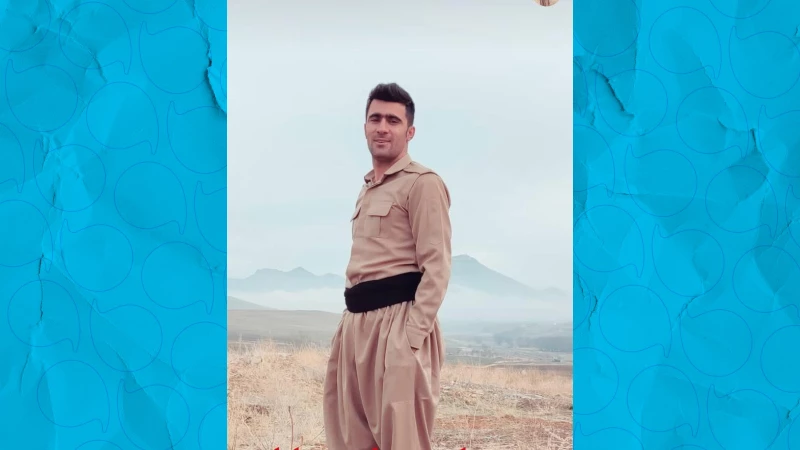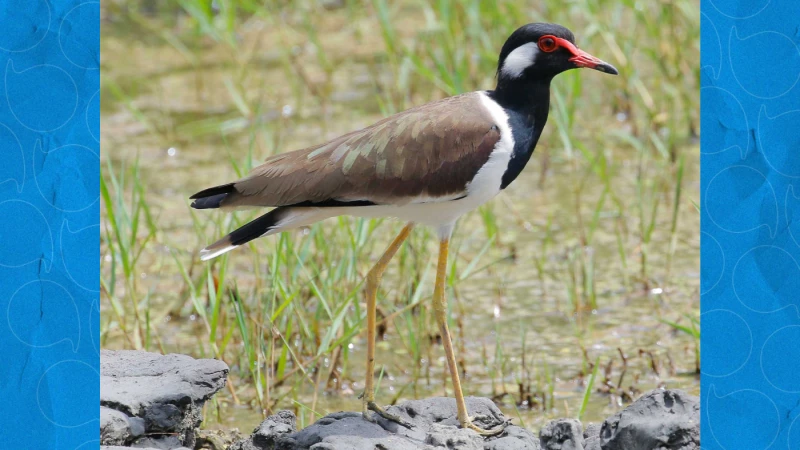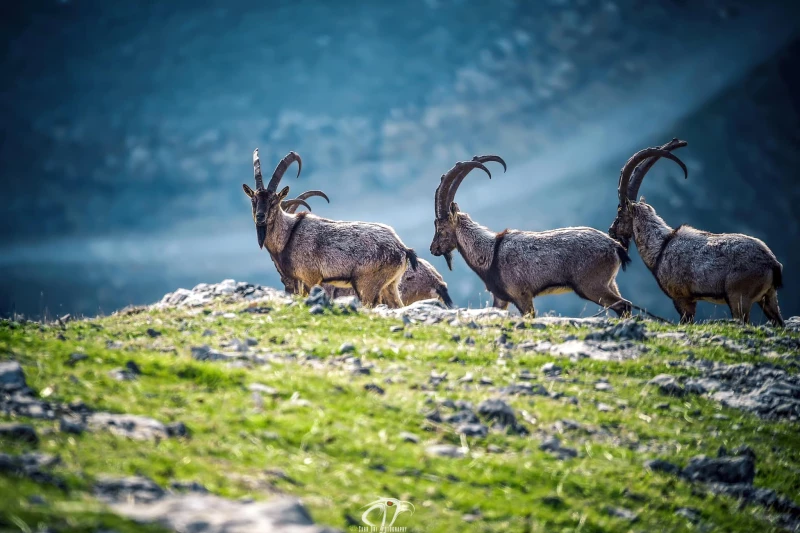Aram Majid has dedicated years to tirelessly promoting and introducing the 'Klash' shoe across diverse economic, social, cultural, and diplomatic spheres. His mission is clear: to bring new life into his inherited profession, combating the looming threat of extinction amidst the deluge of imported goods inundating the Iraqi markets.
A pulse passion for life
For nearly four decades, Aram Majid, 55, has honed his craft in the art of crafting 'Klash' shoes at his quaint, inherited shop nestled in the Sabunkaran area of Sulaimani city.
With unwavering passion, he dedicates the majority of his time to meticulously fashioning 'Klash' shoes, paying close attention to every intricate detail to ensure the utmost quality and durability of his creations.
Occasionally, the rhythmic hum of Kurdish songs fills his shop as he carefully arranges woven cotton pieces, expertly pressing them into the soles of 'Klash' shoes with the rhythmic strikes of his small hammer, infusing his workspace with an infectious energy and vibrancy.
Threads and colors
Majid elucidates the intricate process behind crafting 'Klash' shoes, emphasizing its manual nature devoid of any mechanical intervention, yet demanding precision, expertise, and patience.
Fabric stands as the primary raw material in 'Klash' shoe production, initiating the process by immersing the raw fabric in boiling water for over an hour.
Subsequently, it undergoes dyeing with blue and red hues before being extracted, dried, and meticulously cut into small segments.
These fragments are manually compressed to form a cohesive unit, then meticulously stitched with bull leather thread to fashion the sole – the foundation of the shoe. Each sole comprises 120-150 tightly compressed fabric pieces, cut uniformly without distinction between right and left foot.
A plant-based glue is meticulously applied to the edges of the sole to safeguard against wear. Following this, the knitting phase commences, utilizing cotton threads to craft the shoe's face and edges.
Crafting a single pair of 'Klash' shoes spans a duration of five to seven days, with each shoe uniquely tailored to fit the measurements and contours of the customer's foot.
Priced between 40,000 to 50,000 Iraqi dinars per pair, the manufacturing process remains unchanged over time, relying solely on raw materials like fabric and threads, as highlighted by Majid.
Majid further highlighted the longstanding tradition of 'Klash' shoe production in the Hawraman region, situated to the east of Sulaimani, tracing its roots back thousands of years.
He mentions the discovery of a pair of 'Klash' shoes dating back to 2500 BCE in the village of Hajej within the Hawraman region, as documented by certain sources.
Heritage and Tradition
"We inherited this profession from our ancestors, and it's deeply ingrained in our family's heritage. Practically everyone in our family engages in this craft. Our homes served as makeshift workshops for crafting these shoes, where every family member, regardless of age, contributed and learned the trade organically,” Majid said. “This industry thrived across much of the Hawraman region in the past, fostering a culture of mutual support and unity among families. It was a collaborative effort filled with joy, music, and dancing, serving as a welcome relief from the rigors of daily work.”
Reflecting on his past, he fondly recalls a teacher named Othman Hawrami, who taught art at Tawela School in the Hawraman region during the 1970s.
Majid credits him with introducing a dedicated curriculum on 'Klash' shoe production, allowing elementary school students to learn the craft firsthand. This initiative played a pivotal role in passing down the tradition to the younger generation at the time.
A craft in decline
Majid reflects wistfully on the heyday of his profession nearly 40 years ago when demand for his product was robust. However, he bemoans the subsequent decline triggered by an influx of imported shoe varieties saturating the markets of Kurdistan and Iraq.
He attributes this downturn to shifting consumer lifestyles and the pervasive influence of fashion on everyday life.
Majid emphasizes that the ancestral craft he inherited is now teetering on the brink of decline, underscoring the urgent need for relevant authorities to intervene and safeguard it from extinction.
Imports flooding local markets
Majid underscores the pivotal role of government authorities in both the Kurdistan Region and the federal government in safeguarding local and heritage industries, recognizing their integral role in preserving cultural and social identity, alongside their economic importance.
He highlights the dwindling demand for local 'Klash' shoes, attributing it to the unregulated influx of Iranian 'Klash' shoes into the Kurdistan Region, sold at discounted rates due to the depreciation of the Iranian currency, thereby adversely affecting their business.
Furthermore, the 'Klash' shoe industry thrives in the Iranian Hawraman region. Local traders report that Iran annually exports approximately 250,000 pairs of 'Klash' shoes to markets in the Kurdistan Region.
Industry and identity
Economic expert Kawa Abdulaziz reaffirmed that Kurdish 'Klash' shoes, crafted in the Hawraman region, boast high quality owing to locally sourced materials.
Moreover, they serve as a cornerstone of the cultural and social fabric of the area, their manufacturing tradition tracing back millennia.
Abdulaziz underscored the positive influence of artisanal industries on local economic growth, advocating for their utilization as alternatives to imports.
He further emphasized the vital significance of preserving and nurturing local industries, citing their pivotal role in creating employment opportunities and fostering creativity. He underscores the imperative to bolster support for the 'Klash' shoe industry, noting its pivotal role in safeguarding folk heritage and cultural identity, alongside its economic importance.
The 'Klash' shoes, alternatively referred to as "al-Kiwa" in Iraq, hold significant cultural importance as a traditional Kurdish footwear.
Recognizing their cultural significance, UNESCO added 'Klash' shoes and the art of crafting them to its Intangible Cultural Heritage list in 2017, with the aim of safeguarding this cherished profession from fading into obscurity.
A comfortable choice for walking
Salar Saeed, 55, has been donning 'Klash' shoes for years, particularly during the spring and summer months. According to him, these shoes offer numerous medical and health advantages.
Their comfort, durability, and quality make them ideal for long walks, and their lightweight design adds to their appeal.
Physicians often prescribe them to individuals experiencing back and spinal discomfort.
Saeed also views 'Klash' shoes as an integral part of Kurdish traditional attire, enhancing its beauty and elegance when paired together.
Environmentally friendly
Environmental expert Najmadin Niroyi asserts that authentic 'Klash' shoes, crafted locally, boast excellent specifications and are environmentally sustainable.
He elaborates that these shoes are made entirely from natural materials, including cotton fabric and leather derived from animals, which lack the detrimental environmental impacts associated with plastic and other harmful materials.
Niroyi underscores the significance of educating consumers about the importance of opting for environmentally friendly footwear like 'Klash' shoes, emphasizing their use of natural materials that pose no threat to the environment.
Ronaldo sporting "Klash"
Despite the hurdles confronting his trade, Majid remains steadfast in his personal endeavors to garner attention for his product across diverse platforms.
In 2014, he crafted a bespoke shoe for football luminaries Cristiano Ronaldo and Messi. Furthermore, he bestowed another shoe as a token of appreciation to the President of Croatia and the head of the Croatian Football Federation in 2015.
Additionally, he tailored a shoe specifically for the President of the Kurdistan Region, Nechirvan Barzani, and basketball icon Michael Jordan.
Majid actively engages in cultural and artistic gatherings in Iraq and the wider region to showcase his product.
Notably, the American organization PIC procured a substantial assortment of these shoes from Sulaymaniyah Province's markets in previous years to endorse local production and conserve this footwear variety, retailing them in European nations. Undeterred, Majid is currently endeavoring to market his merchandise in select Arab countries to expand his customer base.

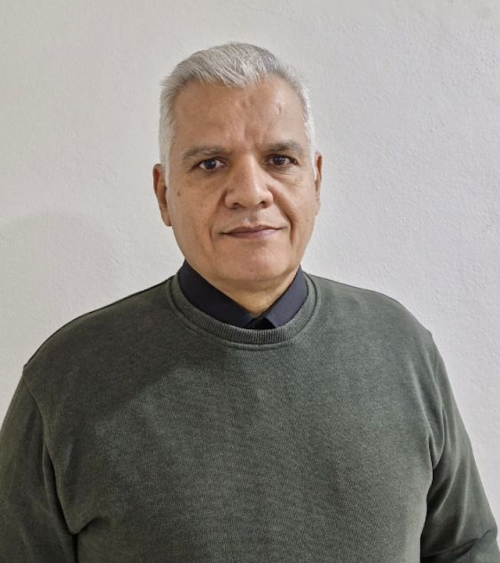
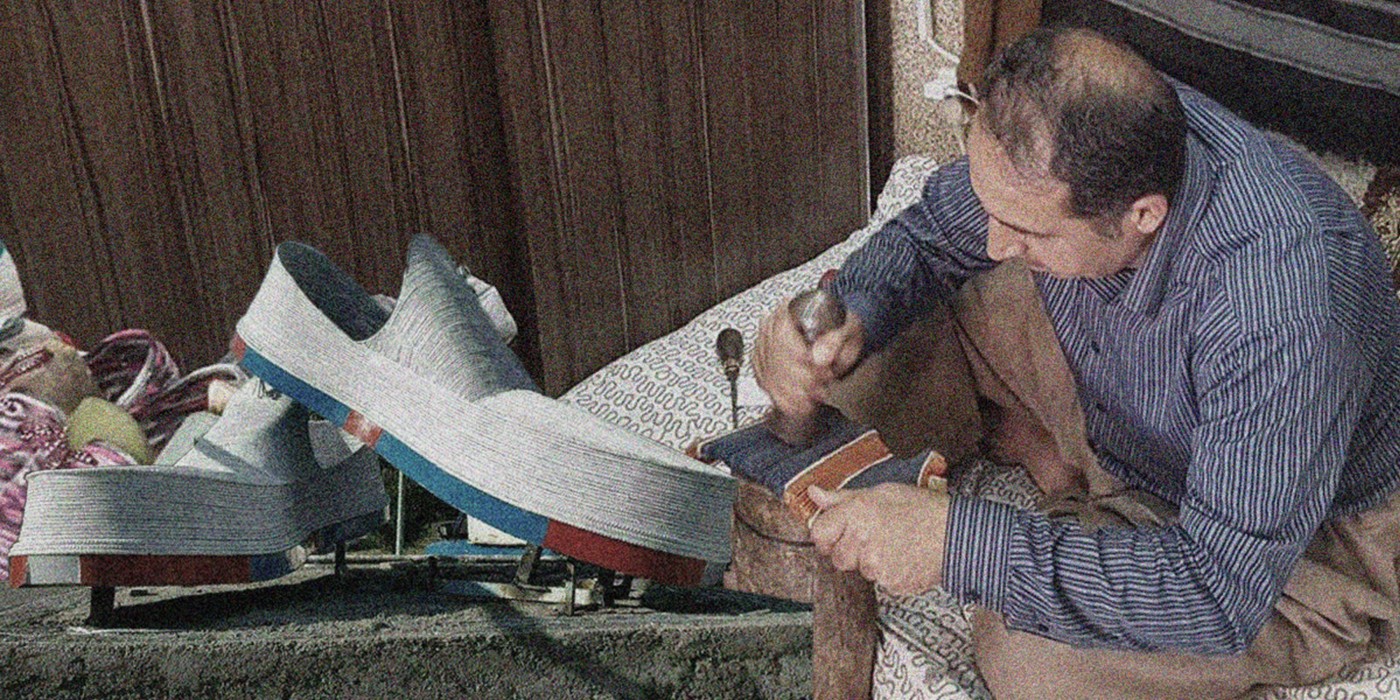
 Facebook
Facebook
 LinkedIn
LinkedIn
 Telegram
Telegram
 X
X
